Smart objects support the benefits of play
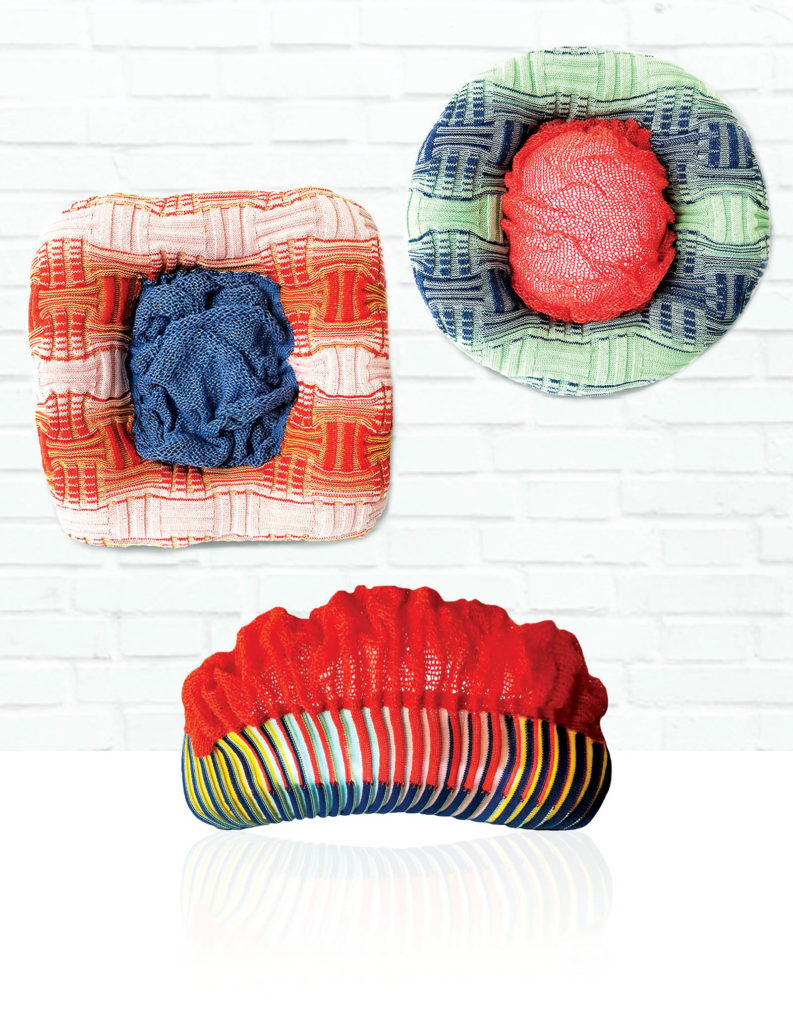
London, U.K.-based smart textile designer Michelle Rinow has unveiled her Transforming Touch series, which was developed based on research about the benefits of sensory play for adults. Her design methodology places emphasis on human interaction, connection and engagement through color and materials. Using cotton, silk and nylon blend yarns on STOLL and SHIMA SEIKI industrial knitting machines, Rinow created knitted objects with an inner portion that’s an inflatable rubber. With Arduino Software, Rinow was able to code how the pieces would behave, so they respond to human touch with shape-shifting movement and light. Photo: Michelle Rinow.
Researchers use weaving for new on-skin smart interface
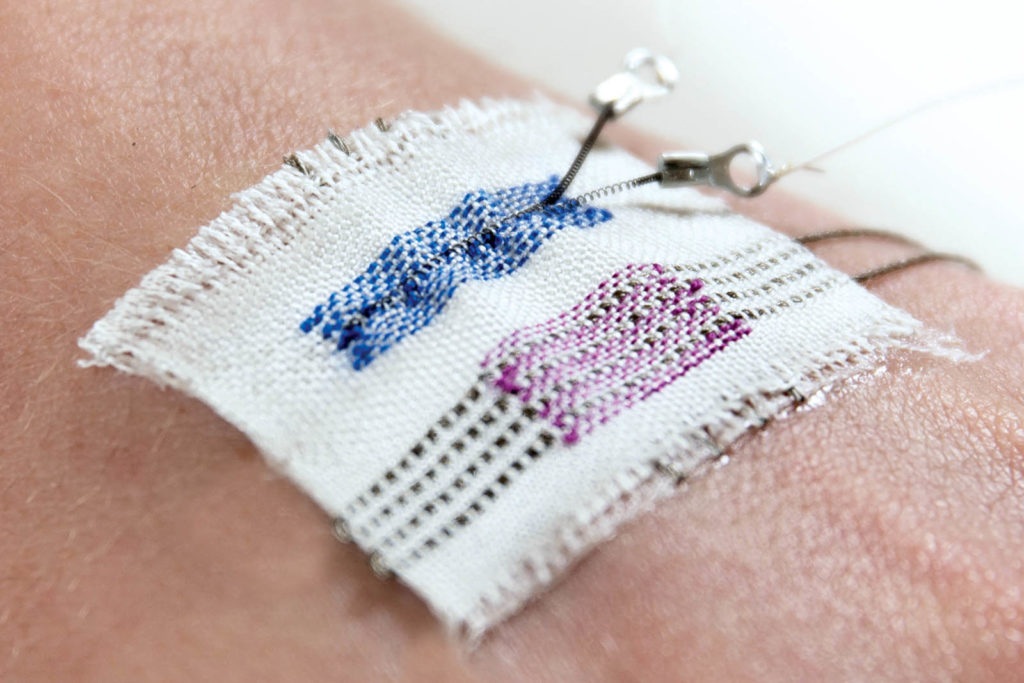
A design team at Cornell University’s Hybrid Body Lab in Ithaca, N.Y., has introduced a new wearable technology: WovenSkin, a multifunctional on-skin interface with haptic feedback through shape-memory alloy and input through pressure sensing. Researchers drew on the textile craft of weaving, integrating it with new smart technology to “weave a second skin,” the research team reports. The weaving incorporates circuitry in the textile structure, which, when extended to on-skin interface fabrication, allows for electrical connections between layers while maintaining a slim form. Weaving also supports multi-materials integration in the structure itself, offering richer materiality for on-skin devices. Team members were led by Professor Cindy Hsin-Liu Kao. The team’s publication is titled “Weaving a Second Skin: Exploring Opportunities for Crafting On-Skin Interfaces Through Weaving.” Photo: Hybrid Body Lab, Cornell University.
Face covering for runners
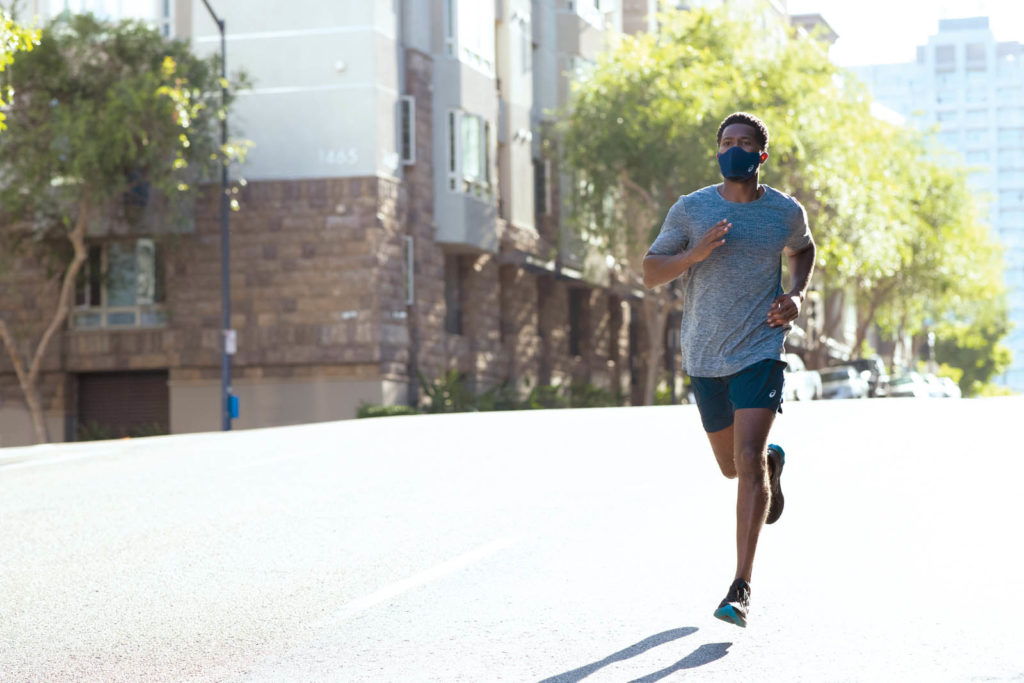
ASICS Institute of Sport Science (ISS), Kobe, Japan, has designed a new face mask for runners with performance, comfort and protection in mind. The ASICS Runners Face Cover was developed in response to research conducted by the company that shows 54 percent of runners in the United Kingdom are more driven than ever to return to their physical peak. However, 73 percent said wearing a mask when running is not comfortable because masks irritate the skin and make it hard to breathe. This new product allows for more room inside the mask for easier breathing, and it has strategically placed air vents to increase airflow. The fabric dries quickly, and the adjustable fit will accommodate a variety of sizes. The product is made with 31 percent recycled materials. Photo: ASICS.
‘Intelligent’ tablecloths for safer seating
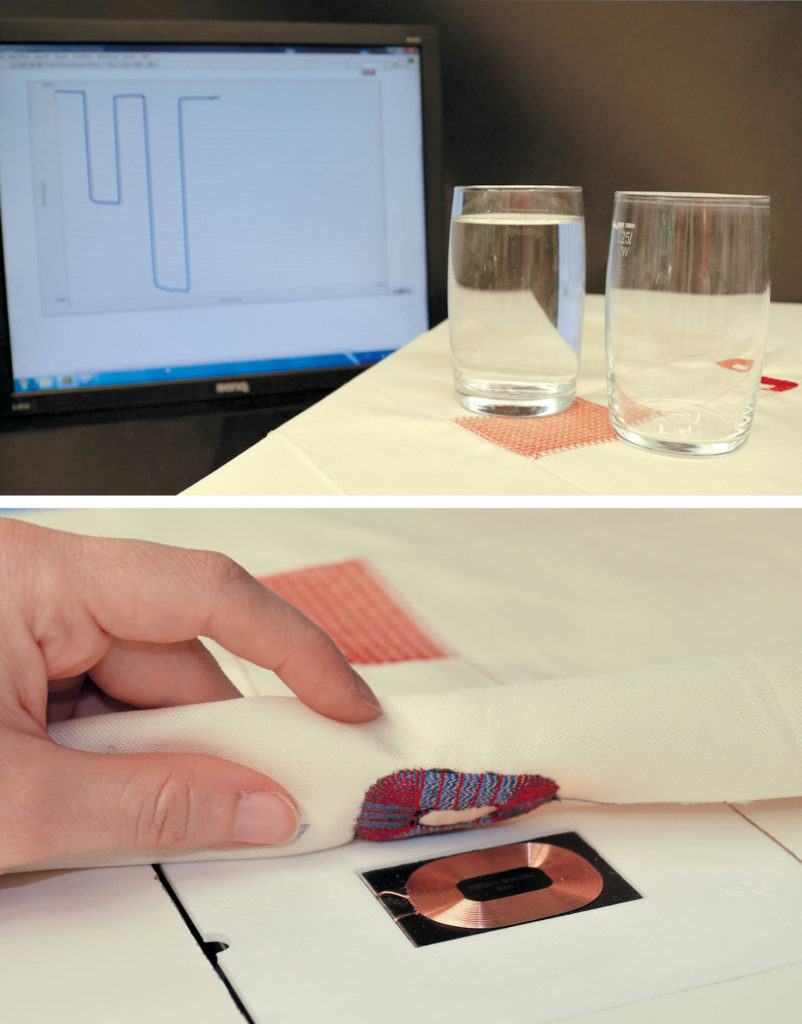
Current hygiene regulations require restaurant operators to ensure sufficient distance between guests, but that can be challenging to manage. “Intelligent” tablecloths could offer some help with seating management. The German Institutes of Textile and Fiber Research Denkendorf (DITF) are conducting research on tablecloths that feel like textiles but that also can interact with electronics integrated in the table. Central functions include the detection of seat occupancy, ordering from a menu and an event and game application. Restaurant visitors could place their orders directly into the fabric without contact with a server. The research project is funded by Germany’s Federal Ministry of Economics and Technology within the framework of the program for the promotion of joint industrial research. Photo: DITF.
Ford introduces 3D-knitted, custom, smart seat covers
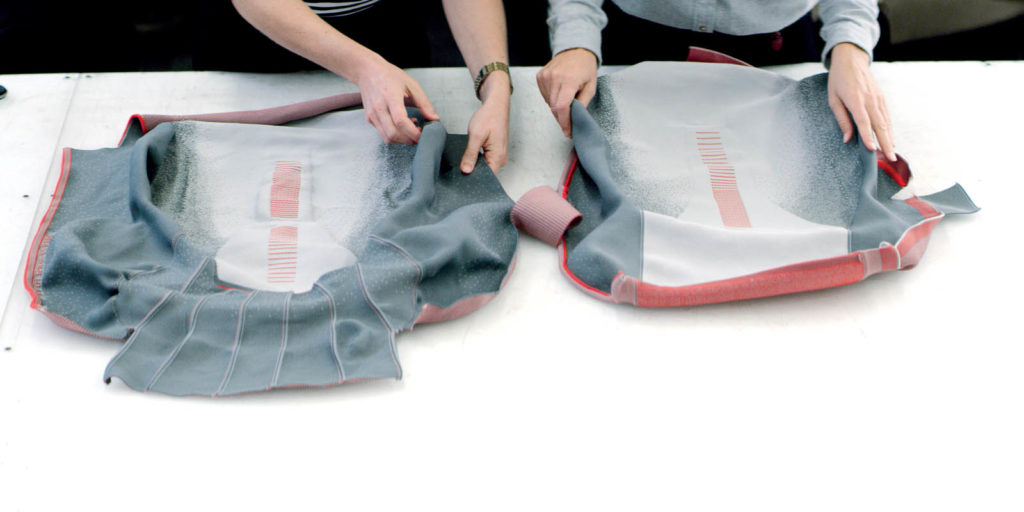
Ford Motor Co. is introducing technology to produce seamless seat covers with 3D knitting, and it is exploring a means for customers to design their own seat covers and add custom touches, including smart technology. Built-in connectivity could integrate heating, controls for the doors and windows, wireless smartphone charging and sensors to monitor the driver’s health. The 3D-knitting technology also reduces production steps, creates less waste and can use different yarns, such as polyester, wool, silk, carbon fiber and even recycled materials. Customers could have the option of different covers on the front and rear seats, or be able to personalize covers with individual color combinations and graphics, or seasonal or region-specific designs. Photo: Ford Motor Co.
 TEXTILES.ORG
TEXTILES.ORG


